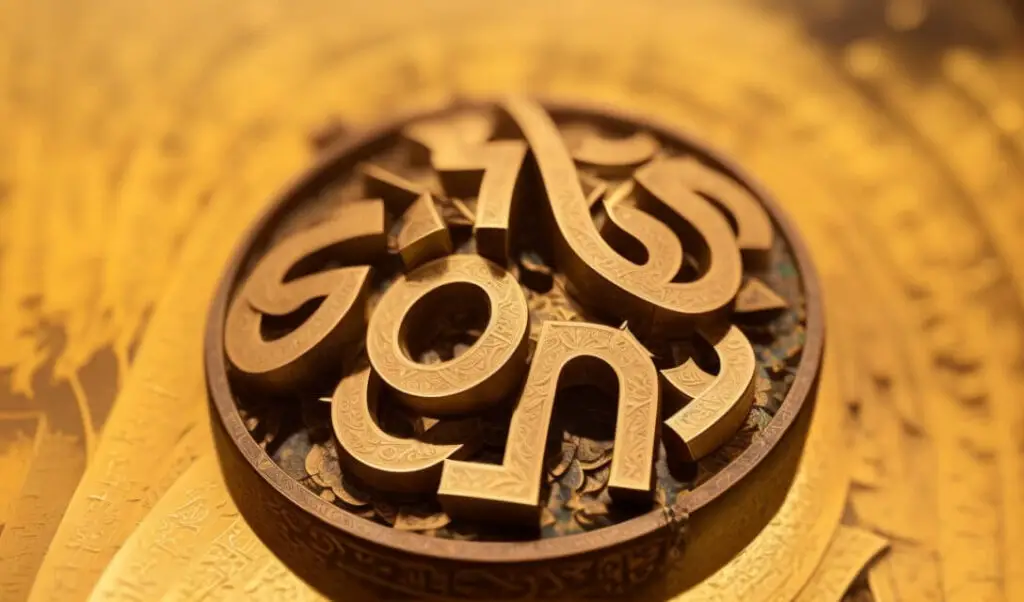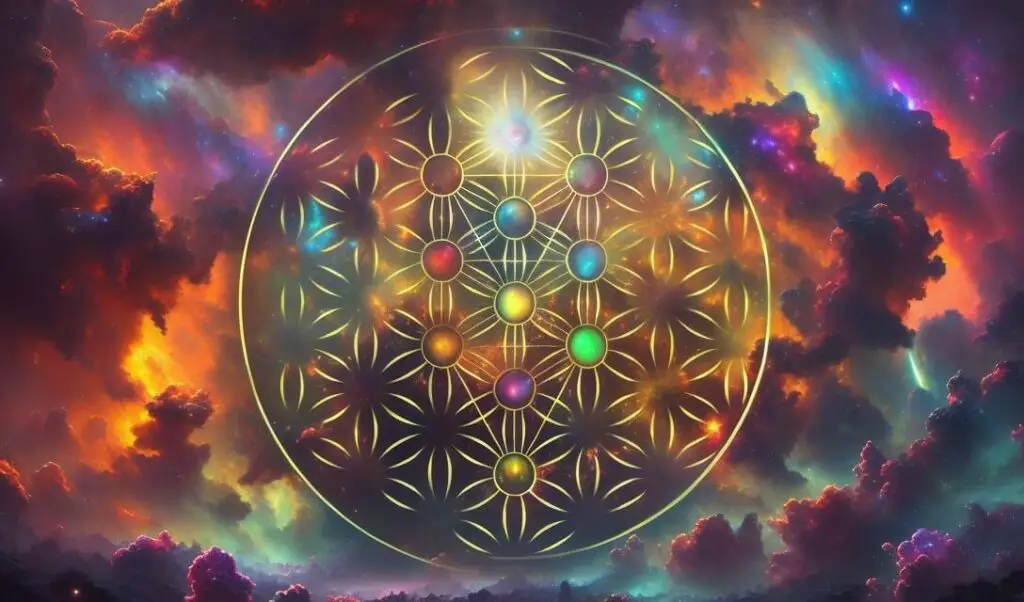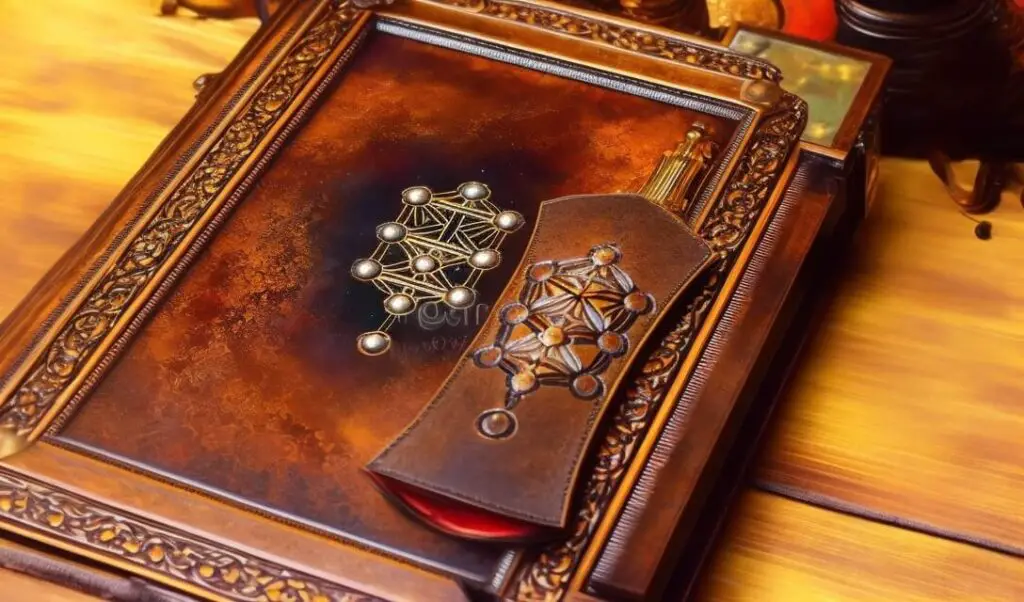Hebrew Numerology as a Form of Mysticism
Mankind has long been intrigued by the mystical connections that bind together the physical and spiritual realms. One such pathway through which this unison is sought is the study and practice of numerology. Hebrew numerology, a branch of this age-old science, is deeply ingrained in Jewish mystical traditions.
Hebrew numerology, often seen synonymous with gematria numerology, is an esoteric means to interpret the sacred texts of Judaism, primarily the Torah. It forms a crucial aspect of Jewish culture and belief, intertwining numbers with the Hebrew alphabet, allowing a more profound exploration of the scriptures and providing a mystical understanding of life.
In Hebrew numerology, each letter is assigned a numerical value, providing the text with an additional layer of interpretation. This layered interpretation imbues the words, phrases, and hence, entire texts, with spiritual significance. Through this method, practitioners often find hidden messages, drawing mystical connections, and deriving profound insights about the divine world and our relation to it.
Over the centuries, these methods have evolved, taking on various forms, branching out, yet remaining intrinsically linked to the same spiritual quest. Among these, gematria and Kabbalah numerology stand as prominent disciplines that have guided generations of Jewish scholars, mystics, and the common folk in their quest for spiritual wisdom and understanding.
While Hebrew numerology may initially seem complex, its fundamental concept is simple: it’s a system of relating the physical world with the spiritual one through the medium of numbers. As you delve deeper into its intricacies, it unfolds a universe of connections, wisdom, and pathways to spiritual enlightenment. As you move forward in this article, you’ll find how the mystical traditions of Hebrew numerology, Kabbalah, and gematria weave together to form a rich tapestry of Jewish esotericism.
The Foundation: Hebrew Alphabet and Numerical Values

The Hebrew alphabet forms the cornerstone of Hebrew numerology. Known as Aleph-Bet, after its first two letters, the Hebrew alphabet is a set of 22 consonant letters that also represent numbers. The connection between the Hebrew letters and numbers is not merely symbolic; it’s foundational to the Jewish thought process. This form of number symbolism, known as gematria, assigns each Hebrew letter a numerical value, leading to a multiplicity of interpretations.
This practice of attributing numerical values to letters started as early as the 8th century BC, well-evidenced in the inscription of an ancient Hebrew amulet found in Ketef Hinnom, near Jerusalem. Over time, this practice evolved into a systematic field of study – gematria.
In gematria, the 22 letters of the Hebrew alphabet are assigned numbers, from one to 400. The first ten letters (Aleph to Yud) represent the numbers one to ten. The next set of letters (Kaf to Tzade) represent the multiples of ten from 20 to 100. Finally, the last four letters (Kuf, Reish, Shin, and Tav) signify 200, 300, and 400.
While this may seem a straightforward alphabetical-numerical mapping, its significance is much deeper. Each numerical association unveils hidden meanings, connections, and wisdom. The letters with their numeric equivalents can create or unravel puzzles within the texts, offering deeper understanding and revealing insights.
Consider the word “chai,” meaning life in Hebrew, composed of two letters, Chet and Yud. Chet has a gematria value of 8, and Yud of 10. So, the word “chai” has a numerical value of 18 (8+10), making 18 a symbol of life and luck in Jewish culture.
But the art and wisdom of Hebrew gematria don’t stop at basic numerology. It’s a system that further branches into various methods like “Mispar hechrechi” (absolute value method), “Mispar gadol” (great value method), “Mispar siduri” (ordinal value method), and many more. Each method offers different insights, contributing to the depth and breadth of this mystical tradition.
In the following sections, we will delve deeper into gematria and another significant form of Hebrew numerology, Kabbalah numerology, exploring how they aid in interpreting Jewish texts and guiding personal spiritual journeys.
Delving into Jewish Numerology

The term “Jewish numerology” often refers to the study and use of numerological practices within the Jewish tradition. It is a mystical art that is not just about assigning numbers to words or names, but it’s a deep and profound way of searching for hidden meanings, understanding the universe, and connecting with the divine.
The numerological systems in Judaism, including gematria, have left profound imprints on Jewish culture, literature, law, and folklore. In many instances, Jewish numerology helps deepen the understanding of the biblical texts. Even in daily life, the knowledge of Jewish numbers meaning and interpretation can shed light on the mysteries of existence and guide one’s spiritual journey.
For instance, the number 7, a key figure in Jewish numerology, is considered sacred and represents divine perfection or completeness. It is the number of creation, as God created the world in six days and rested on the seventh. The number 7 appears numerous times throughout the Torah, and it structures several Jewish practices, including the observance of Shabbat on the seventh day, the seven weeks of the Omer count between Passover and Shavuot, and the sabbatical (Shmita) year every seven years.
Another significant number is 40, associated with transformation and renewal. It rained for 40 days and nights during the Flood, Moses spent 40 days on Mount Sinai, the Israelites wandered in the desert for 40 years, and a pregnancy is 40 weeks, symbolizing a period of gestation before birth or renewal.
Jewish numerology also transcends the earthly realm and ventures into the exploration of eschatological events. For instance, the number 10 is considered significant in Jewish eschatology, symbolizing a world undergoing judgment – as evident in the “Ten Days of Repentance” between Rosh Hashanah and Yom Kippur.
Jewish numerology is a mirror reflecting the universe’s divine structure, a language encoding messages from the spiritual realm, and a tool enabling human beings to interact with these messages. It allows the practitioner to venture beyond the physical, to see the hand of the Divine in every aspect of life, and to understand the spiritual principles that underlie existence.
Gematria: The Art of Biblical Numerology

Gematria, an essential aspect of Jewish numerology, is a traditional Jewish system that finds meanings based on numerical values of words and phrases. The term “gematria” originates from the Greek word “geōmetriā,” meaning geometry or earth-measurement. It reflects the ancient belief in the mystical relationship between numbers and the natural world.
Using gematria in biblical studies involves finding the numerical equivalence of a word or phrase and then associating it with another word or phrase of the same numerical value to uncover deeper, hidden meanings. This form of biblical numerology seeks to reveal the divine wisdom embedded in the sacred texts. It’s akin to deciphering a divine code, where numbers act as the key to unlocking spiritual truths.
For example, the Hebrew words for “love” (ahava) and “one” (echad) both have the gematria value of 13. When combined, their sum, 26, equals the value of the Tetragrammaton, the four-letter name of God (YHVH), signifying the concept that through love, we can achieve oneness with God.
But it’s not just words – entire sentences or verses can be analyzed using gematria. An example is the verse in Deuteronomy (6:4), “Hear, O Israel: The LORD our God, the LORD is one.” Its total gematria value equals 1118, the same as the phrase “I am the first and I am the last; besides me there is no God” (Isaiah 44:6).
Such instances exemplify how gematria in the bible connects different parts of the text, offering new layers of interpretation, and creating a network of interlinked ideas that span across the whole scripture. Therefore, answering the question, “is gematria numerology?” isn’t a simple yes or no. While gematria employs numerological techniques, it’s a unique and complex system of biblical interpretation, rather than just a type of numerology.
Kabbalah Numerology: Personal Mysticism and Life Paths

Kabbalah, the Jewish mystical tradition, introduces another layer to Jewish numerology. Kabbalah numerology, also known as Kabbalistic numerology or Hebrew numerology in some circles, is a specific system that interprets an individual’s name and date of birth to understand their spiritual potential and life path.
This aspect of numerology in Kabbalah is closely related to the concept of gematria. However, while gematria generally focuses on interpreting texts, Kabbalah numerology tends to apply more directly to personal introspection and self-discovery.
There are several systems within Kabbalah numerology, but one of the most prominent is the method of calculating the numerological value of a person’s name to discern their characteristics and destiny. This practice is known as the ‘method of the name,’ wherein each letter of the Hebrew alphabet is assigned a specific numerical value. The sum of these values in a person’s name is then analyzed to deduce meaningful insights about the person’s character, potential challenges, and life purpose.
Another essential aspect of Kabbalah numerology revolves around the ‘Tree of Life,’ a symbolic diagram consisting of ten spheres, or ‘sefirot,’ which represent different aspects of God or stages of the creation process. Each sefirah is associated with a specific number, and these numbers hold deep significance in Kabbalistic teachings, influencing the interpretation of an individual’s numerological analysis.
Using Kabbalah numerology as a tool for self-understanding is not about predicting the future but rather about revealing the inherent potential within a person. It encourages introspection, personal growth, and a deeper connection with the spiritual realm. It demonstrates the practicality of the question, “what is gematria used for?” in everyday life, and how to use gematria in the context of personal spiritual development.
Drawing Parallels: Comparison and Connections Among Jewish Numerology, Gematria, and Kabbalah Numerology

Despite their distinct applications and interpretations, Jewish numerology, gematria, and Kabbalah numerology are closely intertwined. They share a common foundation—the Hebrew language and its numerical system—and a mutual goal of deciphering the divine wisdom hidden in numbers.
The practice of Jewish numerology offers a broader perspective, encompassing various numerological techniques used within Judaism, including but not limited to gematria and Kabbalah numerology. It is the umbrella term encompassing all Jewish numerical interpretations, such as the significance of numbers in the Torah or Talmud, the ritualistic use of numbers in Jewish customs, or the apocalyptic meanings attributed to numbers.
Gematria, on the other hand, is a more specific practice, focusing primarily on the numerical equivalence of words and phrases in the Hebrew language. It’s like a subset within the larger set of Jewish numerology. Its primary application is in interpreting religious texts, like the Torah and the Talmud, and it helps uncover hidden meanings and deeper layers of understanding. In a way, to ask, “is gematria numerology?” is to ask if a square is a rectangle; all squares are rectangles, but not all rectangles are squares. Similarly, gematria is a form of numerology, but not all numerology is gematria.
Kabbalah numerology, meanwhile, is an approach rooted in the mystical tradition of Kabbalah. It uses numerological concepts for personal introspection and spiritual development, aligning more with life path and personality numerology seen in other traditions. It answers the questions “what is gematria used for?” and “how to use gematria?” in a personal, individualistic context, demonstrating that these ancient techniques can offer wisdom and guidance in our modern lives.
These three practices are like different streams flowing from the same source—the rich and profound tradition of Jewish mysticism—each offering its unique insights while remaining connected to the others.
The Confluence of Mystical Traditions

The enthralling journey through Hebrew numerology, gematria, and Kabbalah numerology provides an insight into the depth and breadth of Jewish mystical traditions. At their core, these practices are more than mere numerical games or cryptic codes. They are a means to bridge the gap between the physical and the spiritual, offering a language that transcends human tongues to communicate with the divine.
Understanding the confluence of these mystical traditions underscores their interrelatedness and their unique identities within the broad spectrum of Jewish esotericism. Hebrew numerology forms the overarching framework, an ancient practice that has imprinted upon the Jewish psyche, offering a means to find deeper meanings, establish spiritual connections, and explore the profound mysteries of existence.
At the same time, gematria, as a method of biblical interpretation, unlocks a divine code within the holy texts, bridging different parts of the scripture and revealing a network of interconnected ideas. Gematria is a testament to the remarkable integration of numerology and language, wherein each number and letter resonates with divine vibrations, embodying profound spiritual truths.
Kabbalah numerology, on the other hand, offers a personal and introspective approach. It guides individuals on their spiritual journey, helping them uncover their inherent potential and navigate their life path. Through the intricate Kabbalistic systems, one can decode their personal numerological blueprint, fostering self-awareness, spiritual growth, and a deeper understanding of their role within the divine cosmos.
Indeed, the marriage of numerology and gematria, the intertwining of numbers, words, and spiritual insights, creates a robust and profound tradition of mystical understanding within Judaism. As we reflect on these practices and continue to explore their depth, we come to appreciate more and more how they elucidate the divine wisdom inherent in the world around us, within us, and beyond us.
In conclusion, Hebrew numerology, gematria, and Kabbalah numerology, with their rich history and profound implications, continue to serve as intriguing and enlightening paths for spiritual exploration. These practices invite us to engage with the divine in a meaningful and personal way, offering a window into the sacred and eternal wisdom of the Jewish mystical tradition. Whether you’re exploring the numerology in Judaism for scholarly, spiritual, or personal reasons, you are embarking on a journey filled with mystery, discovery, and profound insight.




